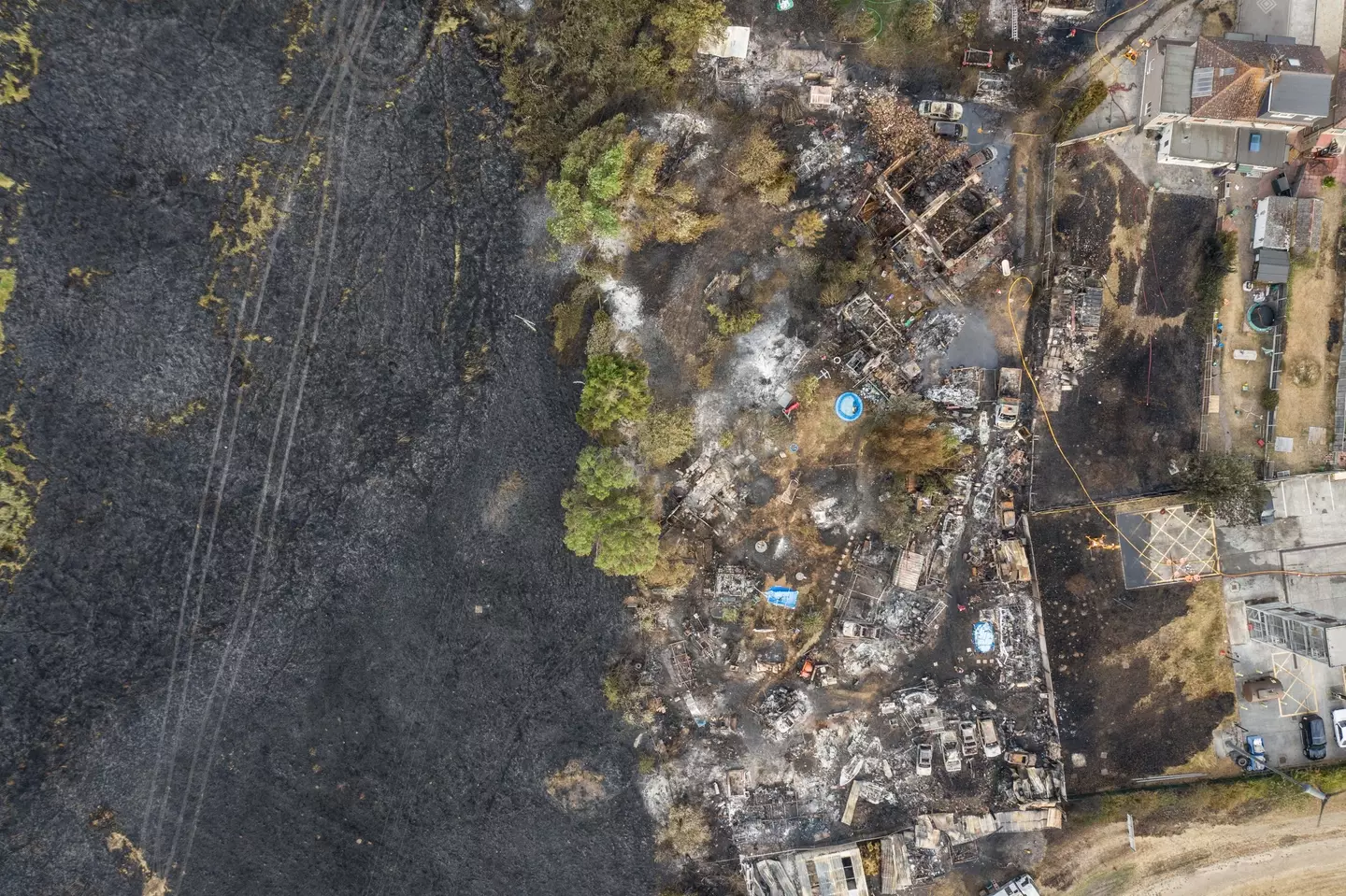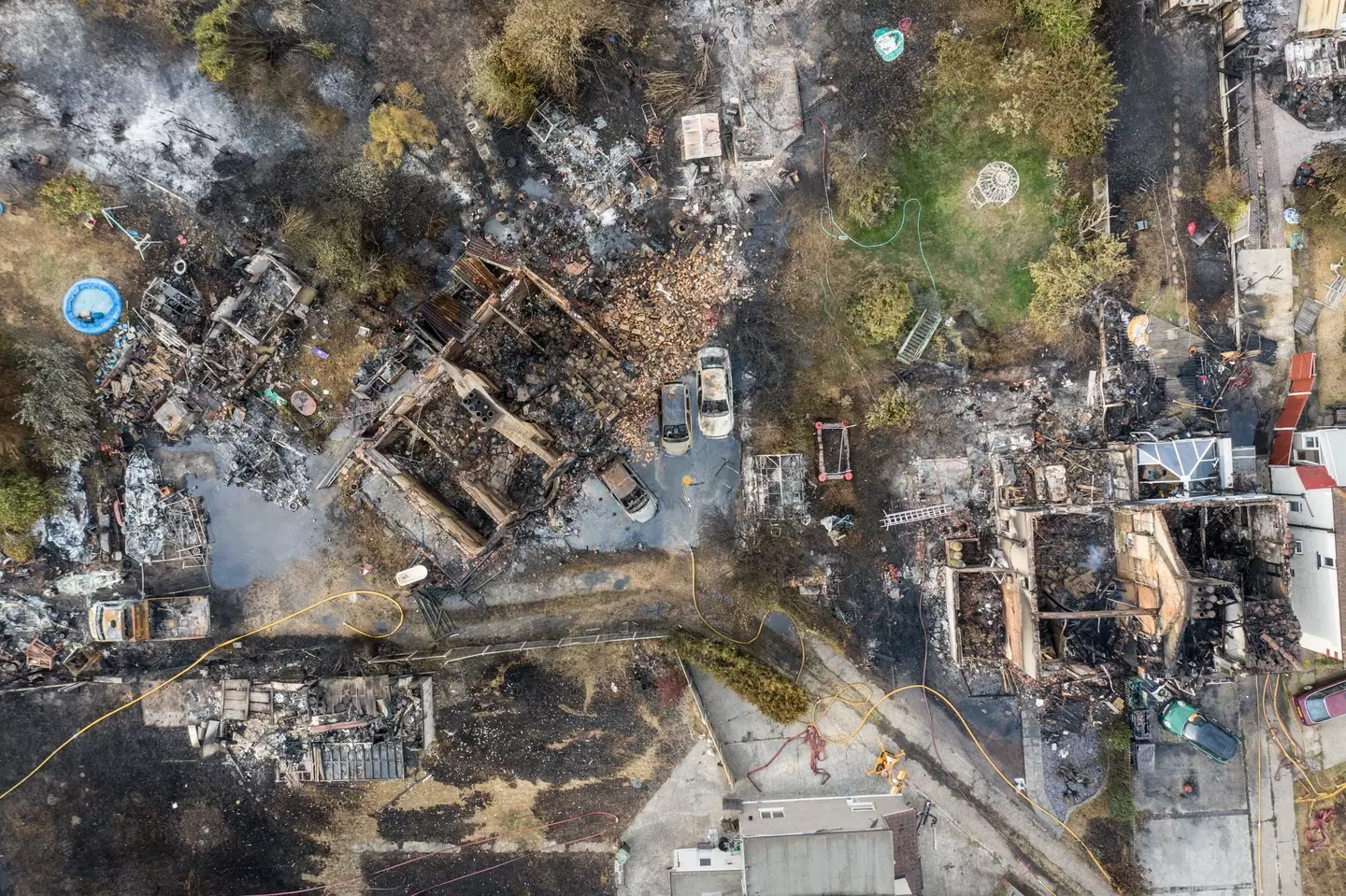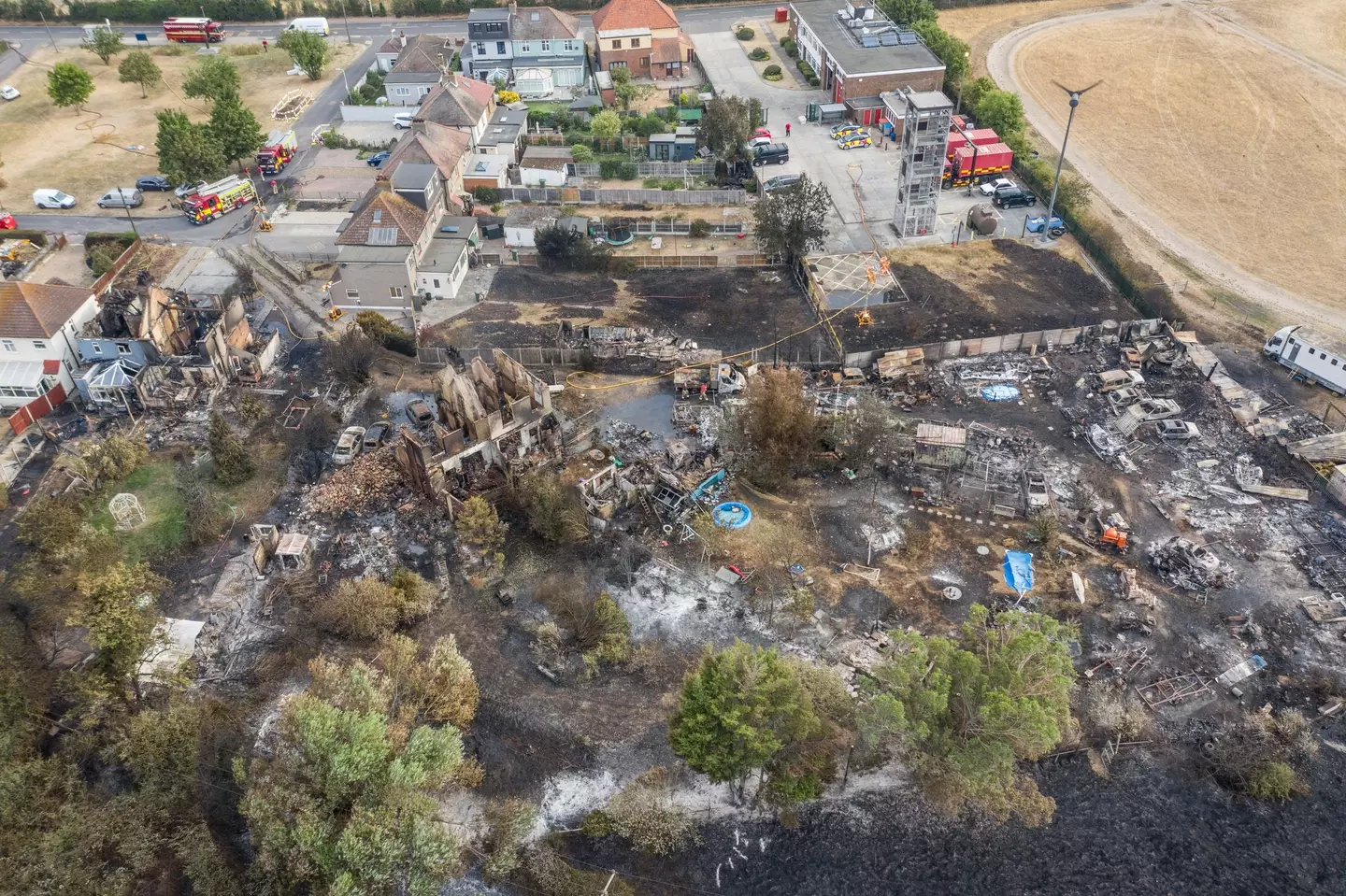
Drone pictures lay bare the devastating impact of fires that spread in the south of England yesterday (Tuesday 19 July).
As temperatures climbed above 40C for the first time ever in the UK on Tuesday, major fire incidents were declared in London, Norfolk, Suffolk, Lincolnshire, Leicestershire and South Yorkshire amid the tinder-dry conditions.
In Wennington, east London, a devastating blaze destroyed two rows of terraced houses and four other homes, as well as outbuildings, garages, stables and cars, London Fire Brigade said.

Advert
Local resident Tim Stock said 'everything's gone' following the fire, but he was grateful that he, his family, two dogs and his tortoise were unscathed.
The 66-year-old told The Sun: "I lost everything. The house, the garden, we had two beehives, there was no going back.
"My son took some stuff and went round to his mate's house but about 10 minutes later that burnt down two/three hundred yards away so he has got nothing either.
"We opened up the church because I have the keys, we got everyone in, people were covered in soot, they were having a drink of water, but then that started filling up with smoke so we had to get everyone out again.
"I'm surprised it didn't burn down as well to be honest."

In Dagenham, a grassland fire destroyed and damaged houses and vehicles.
Sadiq Khan said the London Fire Brigade (LFB) had received more than 2,600 calls throughout the day – seven times the usual number.
The London mayor told Sky News: "Yesterday was the busiest day for the fire service in London since the Second World War.
"Yesterday they received more than 2,600 calls – more than a dozen simultaneous fires requiring 30 engines, a couple requiring 15, and some requiring 12."
He said 41 properties including homes and warehouses were destroyed in London, and urged Londoners not to have barbecues as conditions continued to be very dry.

Elsewhere, a blaze in Barnsley saw a row of houses consumed by flames, and Doncaster Council said a major fire in Clayton spread to three residential properties.
Firefighters in Norfolk were called to more than 80 yesterday, including one that started in a field in the village of Ashmanhaugh and spread to two homes.
Suffolk Fire and Rescue Service said it had been called to more than 60 incidents, 38 of which were fires in the open, describing the situation as 'unprecedented'.
Heatwaves are being made more intense, frequent and longer by climate change, and scientists said it would be 'virtually impossible' for the UK to have experienced temperatures reaching 40C without human-driven global warming.
Scientists also warn that climate change is increasing fire danger across the UK – and people need to be prepared for it.

Simon Clarke, the chief secretary to the treasury, told Sky News that the fires were a 'warning sign' about the impact of climate change.
"This is a remarkable, unprecedented event and something which obviously, because people have been saying, we are not used to seeing in this country," he said.
"What we've seen in recent days is not normal and it is a warning sign."
The searing heat set a provisional new record for the hottest day ever seen in the UK, of 40.3C, in Coningsby, in Lincolnshire, beating the previous record of 38.7C in Cambridge three years ago, by 1.6C.
A total of six sites, mostly in Greater London, saw temperatures reach or exceed 40C.
Scotland experienced its hottest day on record, with the temperature reaching 34.8C in Charterhall in the Scottish Borders, Met Office provisional figures showed.